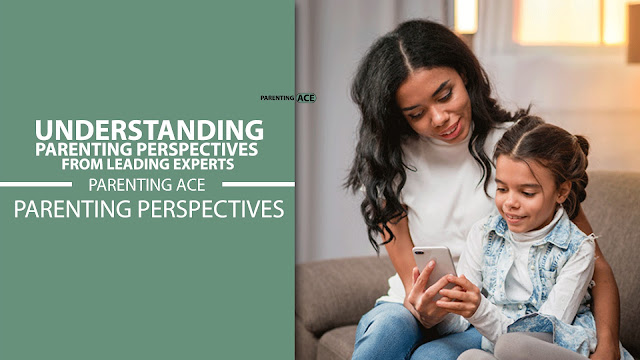Understanding Parenting: Perspectives from Leading Experts
Welcome to our latest blog post, where we embark on a journey into the intricate world of parenting through the lens of leading experts in psychology and child development. From the groundbreaking theories of Erik Erikson and Diana Baumrind to the pioneering insights of Urie Bronfenbrenner, Mary Ainsworth, and Lev Vygotsky, we delve into the diverse perspectives that shape our understanding of parenting. Join us as we explore the multifaceted nature of this fundamental role, gaining invaluable insights into the complexities, challenges, and profound impact of parenting on children's development. Through the wisdom imparted by these esteemed experts, we aim to equip parents and caregivers with the knowledge and tools to navigate the joys and responsibilities of parenting with confidence and compassion.
 |
| Parenting Perspectives by Experts |
Parenting stands as one of the most profound and influential roles individuals undertake in their lifetime. Defined by a multitude of responsibilities, it shapes the course of a child's journey from infancy to adulthood. In this comprehensive article, we explore the multifaceted definition of parenting as articulated by several leading experts in the field. By delving into their insights, we aim to gain a deeper understanding of the complexities, challenges, and rewards inherent in the art of parenting.
1. Erik Erikson
Erik Erikson, a prominent developmental psychologist, conceptualized parenting within the framework of his psychosocial stages of development. According to Erikson, successful parenting involves guiding children through a series of developmental crises, each presenting an opportunity for growth and mastery. He emphasized the importance of establishing trust, autonomy, initiative, competence, and identity in children through nurturing and supportive parenting practices.
2. Diana Baumrind
Diana Baumrind, a clinical and developmental psychologist, is renowned for her research on parenting styles. She proposed three main parenting styles: authoritarian, authoritative, and permissive. Baumrind described authoritative parenting as characterized by high levels of warmth and responsiveness combined with reasonable levels of control and discipline. This style fosters independence, self-regulation, and positive outcomes in children's development.
3. Urie Bronfenbrenner
Urie Bronfenbrenner, a renowned developmental psychologist, introduced the ecological systems theory, which emphasizes the importance of the broader social and environmental context in shaping child development. According to Bronfenbrenner, parenting occurs within multiple nested systems, including the microsystem (family), mesosystem (interactions between family and other settings), exosystem (external environments), and macrosystem (cultural values and norms). Understanding these ecological influences is crucial for effective parenting.
4. Mary Ainsworth
Mary Ainsworth, a developmental psychologist, is famous for her research on attachment theory. Ainsworth proposed that the quality of parent-child attachment significantly influences children's emotional and social development. Secure attachment, characterized by trust, comfort, and responsiveness from caregivers, lays the groundwork for healthy relationships and emotional resilience later in life.
5. Lev Vygotsky
Lev Vygotsky, a pioneering psychologist, emphasized the role of social interaction and cultural context in children's cognitive development. According to Vygotsky, parenting involves scaffolding—providing guidance and support to help children achieve tasks beyond their current abilities. Through collaborative problem-solving and cultural tools such as language and symbols, parents facilitate their children's cognitive growth and learning.
Parenting is a dynamic and multifaceted process influenced by various psychological, social, and cultural factors. As articulated by leading experts such as Erikson, Baumrind, Bronfenbrenner, Ainsworth, and Vygotsky, effective parenting involves nurturing children's physical, emotional, social, and cognitive development within the context of supportive relationships and environments. By integrating these perspectives and insights, parents can navigate the complexities of parenting with greater understanding, empathy, and efficacy, ultimately fostering the optimal growth and well-being of their children.




